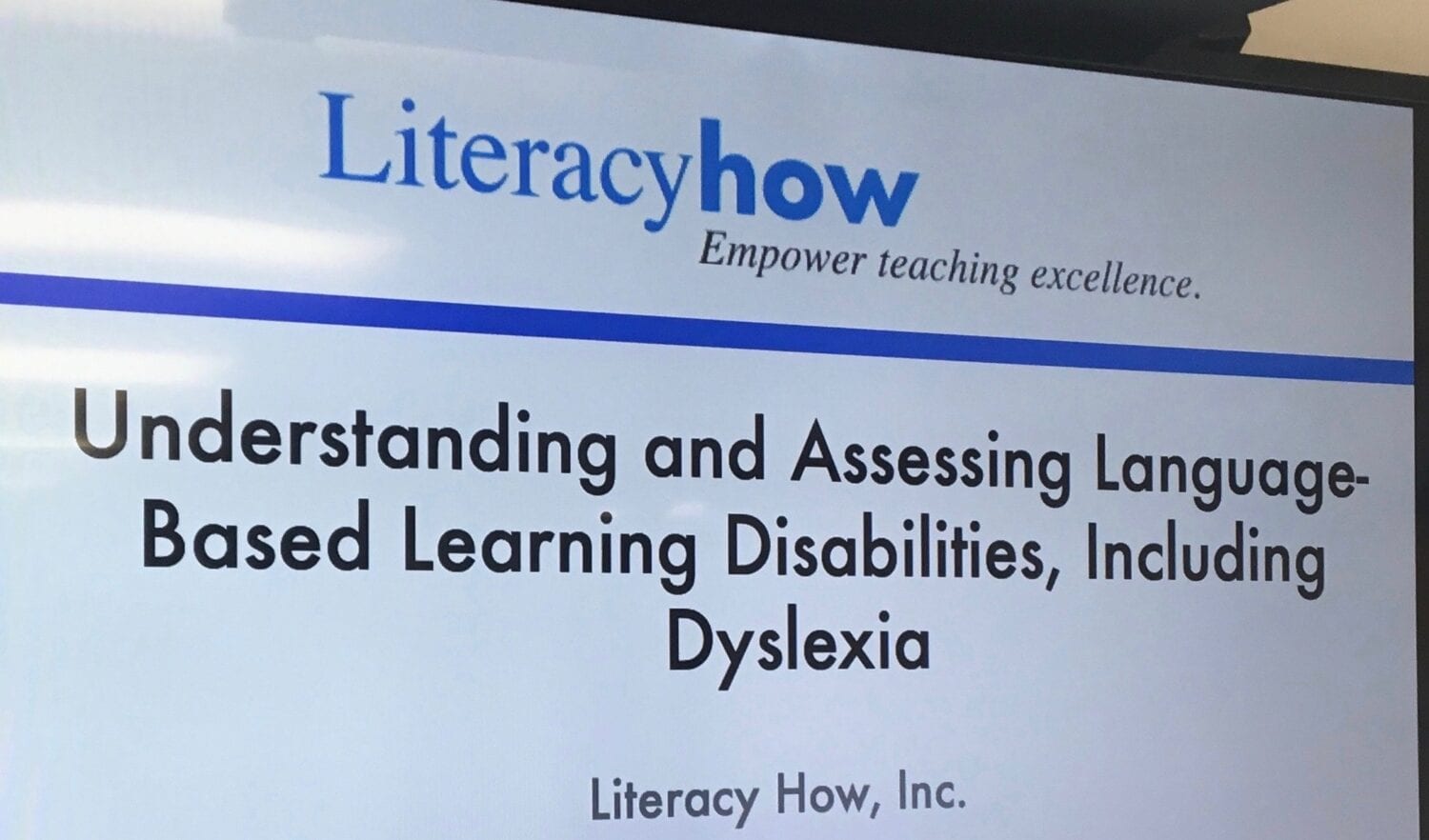Register today for
Structured Literacy series for Tier 2/3 & Specialized instruction
Summer 2024
7/8, 7/10, 7/11, 7/15 & 7/17
Learn from the Literacy How experts in this 30-hour course developed by Dr. Margie Gillis, a Certified Academic Language Therapist and founder of Literacy How.
- Developed for special educators, reading specialists and interventionists
- Course Time: 9am- 4pm with an hour for lunch
- Participants must attend all sessions
Course price is $995 and includes the 4 books in the series.
This is an in-person training with limited capacity and will take place in Trumbull, CT.
Course Description
In this 30-hour course developed by Dr. Margie Gillis, a Certified Academic Language Therapist and founder of Literacy How, teachers will learn how to teach word recognition skills explicitly and systematically to students with SLD/Dyslexia. The series will also demonstrate how to combine word recognition instruction that teaches foundational skills (i.e., phonemic awareness, decoding, and encoding) with methodology in reading comprehension, vocabulary development, and written expression.
This course will empower teachers with knowledge to enhance their tiered intervention or special education specialized instruction.
Looking to enroll a group
Please contact us here to get started
Get Started
"*" indicates required fields
limited seats AVAILABLE
